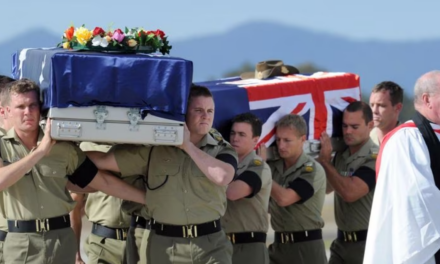In the midst of the ongoing conflict between Israel and Hamas, the recent discovery of six hostages found dead in Gaza has reignited debates over the credibility of the information provided by both sides. Israel has claimed that these hostages were shot by Hamas, while insiders and some independent reports suggest that they may have been killed by Israeli forces during military operations. Given the Israeli Defense Forces (IDF) history of providing information that has later been proven false or misleading, it’s crucial to scrutinize their narrative and understand what Israel might achieve by attributing these deaths to Hamas. This article will explore the dangers of taking the IDF’s statements at face value, the potential motives behind these claims, and the broader implications for the ongoing conflict and international relations.
The History of Misinformation from the IDF
Past Incidents of False or Misleading Information
The IDF has a documented history of disseminating information that has later been contradicted by independent investigations or even by Israel itself. One notable example is the 2014 Gaza War, during which the IDF initially claimed that a deadly explosion at a UN school was caused by a Hamas rocket. However, subsequent investigations revealed that the explosion was likely caused by an Israeli airstrike. This incident, among others, has contributed to scepticism regarding the IDF’s claims in situations where their actions are called into question.
Another example occurred in May 2021, when the IDF announced that ground troops were entering Gaza during Operation Guardian of the Walls, only to retract the statement later, revealing that it was part of a psychological operation designed to mislead Hamas forces. Such instances raise serious concerns about the reliability of the information provided by the IDF, especially in cases where civilian lives are at stake.
The Role of Propaganda in Conflict
Misinformation and propaganda are not uncommon in conflicts, as both sides often seek to control the narrative and influence public perception. For Israel, controlling the narrative is particularly important given its strategic alliances, especially with Western powers like the United States and Australia. By framing Hamas as the sole perpetrator of violence and atrocities, Israel can maintain the moral high ground and justify its military actions in the eyes of the international community.
This use of propaganda is not limited to Israel, as Hamas and other militant groups have also been accused of spreading misinformation to garner sympathy and support. However, the IDF’s position as a state military force lends a certain weight to its statements, making it even more critical to approach its claims with caution.
The Recent Hostage Crisis: Conflicting Narratives
Israel’s Claim: Hamas as the Perpetrator
Following the discovery of the six hostages’ bodies in Gaza, Israel was quick to attribute their deaths to Hamas, stating that the militant group had executed them in cold blood. This claim fits neatly into Israel’s broader narrative of Hamas as a ruthless terrorist organization that poses a constant threat to both Israeli and Palestinian civilians. By framing the deaths in this manner, Israel can continue to justify its military operations in Gaza, which have resulted in significant civilian casualties and widespread destruction.
Israel’s narrative also serves to delegitimize Hamas’s claims of being a resistance movement fighting for Palestinian rights. By portraying Hamas as willing to kill innocent civilians, including those it supposedly claims to protect, Israel can undermine the group’s support both domestically and internationally.
Contradictory Reports: The Role of the IDF
However, insiders and some independent sources have suggested that the hostages may have been killed by Israeli forces during military operations in Gaza. This possibility raises serious ethical and legal questions about the conduct of the IDF and its adherence to international humanitarian law. If these reports are accurate, it would mean that Israel is not only responsible for the deaths of these hostages but is also engaging in a cover-up to shift the blame onto Hamas.
Such a scenario is not without precedent. In past conflicts, there have been instances where Israeli military operations have resulted in civilian casualties, which were later attributed to Hamas or other militant groups. The fog of war often makes it difficult to ascertain the truth, but the IDF’s track record of providing misleading information warrants scepticism, especially in such a sensitive and high-stakes situation.
The Motives Behind Israel’s Narrative
Maintaining the War Effort
One of the primary motives behind Israel’s narrative could be the desire to maintain and even escalate the current conflict. The Israeli government, particularly under the leadership of Prime Minister Benjamin Netanyahu, has taken a hardline stance against Hamas and has shown little interest in pursuing peace negotiations. By framing Hamas as the murderer of hostages, Israel can further vilify the group and justify the continuation of military operations in Gaza.
This strategy also aligns with the broader goals of the Israeli government, which include weakening Hamas’s control over Gaza and preventing the group from gaining legitimacy as a political entity. By keeping the focus on Hamas’s alleged atrocities, Israel can avoid international pressure to engage in peace talks or consider a ceasefire, thus prolonging the conflict and potentially achieving its long-term strategic objectives in the region.
Influencing International Opinion
Another potential motive is the desire to influence international opinion, particularly in countries like the United States and Australia, where public support for Israel is crucial to its foreign policy strategy. By painting Hamas as the sole villain in the conflict, Israel can maintain the support of key allies and prevent any shifts in diplomatic relations that might arise from a more nuanced understanding of the situation.
Australia’s Prime Minister has been particularly vocal in his support for Israel, and the narrative that Hamas executed the hostages could serve to solidify this support. By presenting Hamas as a barbaric organization that murders innocent civilians, Israel can ensure that its actions in Gaza are seen as justified and necessary, even in the face of growing international criticism.
The Dangers of Blindly Believing the IDF
The Risk of Escalation
One of the most significant dangers of accepting the IDF’s claims without question is the risk of further escalation in the conflict. If the international community takes Israel’s narrative at face value, it could lead to increased support for Israeli military operations in Gaza, resulting in more civilian casualties and further destabilization of the region. This, in turn, could exacerbate the humanitarian crisis in Gaza and fuel resentment and radicalization among the Palestinian population.
Furthermore, accepting the IDF’s narrative without scrutiny could embolden Israel to continue its military operations with impunity, knowing that it can rely on international support regardless of the consequences. This could lead to a prolonged conflict with devastating consequences for both Israelis and Palestinians.
Erosion of International Law and Accountability
Another danger of believing the IDF’s claims is the potential erosion of international law and accountability. If Israel is allowed to attribute the deaths of hostages to Hamas without sufficient evidence, it sets a dangerous precedent for other conflicts around the world. State actors could feel emboldened to engage in similar tactics, knowing that they can shift blame onto their enemies without facing significant repercussions.
This erosion of accountability undermines the principles of international humanitarian law, which are designed to protect civilians and ensure that all parties in a conflict are held responsible for their actions. Without accountability, the rules of war become meaningless, leading to increased suffering and loss of life.
Conclusion
The recent discovery of six dead hostages in Gaza has highlighted the dangers of accepting the IDF’s claims without question. While Israel has been quick to blame Hamas for the killings, there is reason to believe that the truth may be more complex. Given the IDF’s history of providing misleading information, it is crucial to approach their narrative with scepticism and consider the broader context of the conflict.
Israel’s motives for attributing the deaths to Hamas are clear: by doing so, it can justify the continuation of its military operations in Gaza, maintain the support of key international allies, and avoid accountability for potential war crimes. However, the consequences of accepting this narrative are dire. It risks further escalating the conflict, eroding international law, and perpetuating a cycle of violence that has already claimed far too many lives.
As the international community watches the situation in Gaza unfold, it is essential to demand transparency, accountability, and a commitment to peace from all parties involved. Only by questioning the narratives presented by state actors and seeking the truth can we hope to achieve a just and lasting resolution to this conflict.





